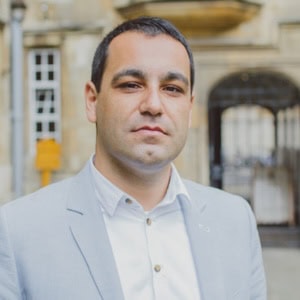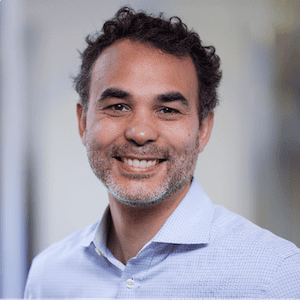-
Moving Past Microfinance: How India’s Small Finance Banks Aim to Take Financial Inclusion to the Next Level
The proliferation of microfinance in India has been a double-edged sword: On the one hand, MFIs have reached customers that most mainstream banks have overlooked. On the other, a lack of clear regulation and oversight has had devastating consequences for some borrowers. But regulators have responded with a new category of financial institution, the “small finance bank.” Andreas Nilsson and Nina Freudenberg of Sonanz explore the evolution of these institutions and whether a wider range of products could also mean deeper social impact.
- Categories
- Uncategorized
-
Seeking a Happy Ending: Will Nigeria’s New and Improved Financial Inclusion Strategy Work Better Than the Last One?
Nigeria's Central Bank has finally admitted something it had been hinting at for months: The 2020 goals described in its National Financial Inclusion Strategy are not feasible. Building off the wins and learning from the shortcomings of that strategy, the country is now setting new goals and targeting new gains in financial access. Olayinka David-West and Ibukun Taiwo of the Lagos Business School share their five recommendations for the next phase in Nigeria’s efforts to reach the unbanked.
- Categories
- Finance, Telecommunications
-
Fighting ‘Tech Complacency’ in Social Enterprise: Why it’s Time to Embrace Blockchain
All around us, Fortune 500 firms and VCs are embracing disruptive innovation – so why aren't more social entrepreneurs following suit? Gautam Ivatury, founder and CEO of LendLedger, says the time has come for the social sector to take some risks and get out of its comfort zone – instead of simply waiting for technologies to filter down to its target beneficiaries. With blockchain, he says, social entrepreneurs "can redraw how industries work, not just create the latest in an endless series of mission-driven service providers."
- Categories
- Finance, Social Enterprise, Technology
-
Unboxing Solar: An Israeli-run Startup Works to Expand Energy Access in the Palestinian Territories
Sometimes the path to social entrepreneurship can be unexpected. Take Israeli entrepreneur Yo'Av Moshe: After an armed confrontation with Israeli soldiers, he decided to use his skills to create social change in his country. He later found the inspiration for his business after leaving Tel Aviv to build a home on wheels with its own solar power system. Moshe now runs the startup SolarBox, which provides off-grid solutions in the Palestinian territories and other areas in and around Israel. He discusses the company’s unique origin story, its struggles and its tangible impact.
- Categories
- Energy, Social Enterprise
-
Power Play: Can Energy Access Entrepreneurs Survive the Relentless March of Grid Electricity in India?
Despite the dubious claims from the Modi administration that India has electrified every village in the country, the march to extend grid infrastructure continues unabated. So where does that leave energy access enterprises? Ananth Aravamudan, Renewable Energy lead at Villgro, explores how these firms can find creative new ways to stay relevant.
- Categories
- Energy, Social Enterprise
-
Trust, Not Peer Pressure: Adapting the Global Microfinance Model for the U.S.
After years of working with global MFIs at Whole Foods’ Whole Planet Foundation, Steve Wanta saw that the group lending model that helped microentrepreneurs abroad could also work for Hispanic female entrepreneurs in Texas. But he also realized that the traditional microfinance model could function better with a few twists. In this Q&A with NextBillion, Wanta discusses the lessons he's learned leading the nonprofit JUST, which is adapting the microfinance model for the U.S. market.
- Categories
- Uncategorized
-
Banking on the Unbanked: Assessing True ‘Creditworthiness’
The combination of advanced fintech with off-grid solar solutions has been a winning combo for Colibrí, a social enterprise devoted to promoting energy access in rural Nicaragua. Its Fácil-Pago technology, powered by Angaza Design, has succeeded partly thanks to the business' approach to an often-difficult financial task: responsibly assessing the credit-worthiness of unbanked customers. Morgan Babbs, Colibrí founder and CEO, explains why the approach to calculating credit-worthiness has resulted in exceeding low default rates among other advantages.
-
Breaking Out of the Social Impact Conference Rut: Five Ways to Design a Truly Impactful Event
Have you ever been to a conference and felt a strange sense of déjà vu – an uncanny feeling that you've seen the sessions, read the buzzwords and heard all the stories before? Even for passionate, insightful members of the social impact community, it's easy to fall into the “same old” when planning a conference. Madhu Viswanathan at the Subsistence Marketplaces Initiative at the University of Illinois shares tips for fellow changemakers who seek to avoid this rut when organizing their own gatherings.
- Categories
- Social Enterprise, Uncategorized










